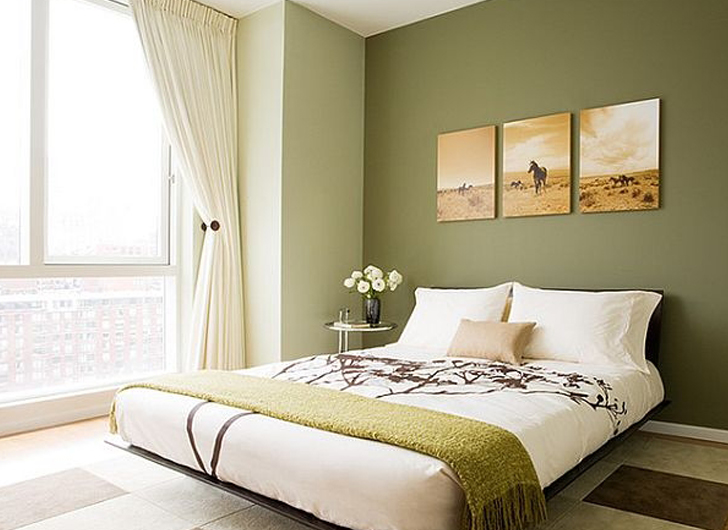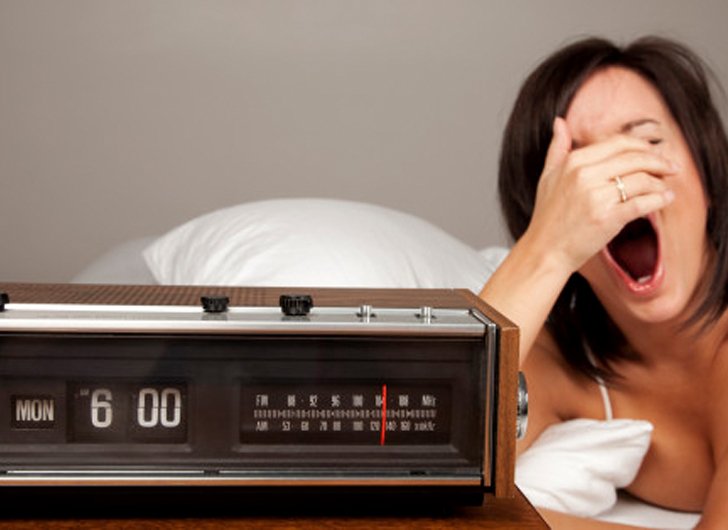HEALTH + FITNESS
Bedroom Hacks That Help Achieve the Perfect Sleep
Published
6 years agoon
 Source: Pinterest
Source: Pinterest
Do you have trouble getting the recommended 7 to 8 hours sleep a night? Have no trouble falling asleep, but find yourself waking up through the night unable to calm a restless mind? Or perhaps you are one of the many who find it difficult to fall asleep.
Sleep problems can be debilitating. They can leave you lacking focus, reaching for sugary snacks throughout the day to try and stay awake, not to mention the tiredness you feel the next day.A post shared by Pureformetraining (@pureformetraining) on
There are a few tips you can take to prepare your bedroom for sleep. Think of your bedroom as a sanctuary and avoid placing any items in your room that can divert the mind away from sleep. Your bedroom should replicate the peaceful tranquility of a spa room – so avoid bright, vivid colors and opt for natural, soothing shades.A post shared by Vintage World (@vintageworld24) on
Avoid a Hot Room
Many women report waking up through the night because their room is too hot. This can also be linked to our hormonal cycle. To help with a warm room try the following:
Use a Fan – not only will a fan help cool the room, it will also provide white noise helping to promote sleep. Place a simple oscillating fan on your dresser so that air is moved around your bedroom.
Choose Sheets Wisely – we have been led to believe the higher the thread count the better the sheet. Unfortunately, that may not be true when we are looking to cool off. Thread counts of 600 or less are more breathable.
Use a Down Pillow – a down pillow is better for keeping you cool as air circulates between feathers which stops heat from being trapped.#sweetdreams #insomniacs #linen #bedroom #bed #sleep #sleeping #bedsidetable #insomnia
A post shared by Wilde Cheyenne (@sweet_sweet_sleep) on
Invest in a Proper Mattress – if you really struggle with getting hot at night you may want to invest in a proper ‘cooling’ mattress designed for hot sleepers.
No Digital Distractions
Banish Blue Light – blue light emitted from digital devices can mess up melatonin production and cause sleep issues. Keep digital devices out of the bedroom, or invest in a pair of glasses that block blue light.
Use a Regular Alarm Clock – forget using your cell phone as your alarm clock. If you keep your cell phone beside the bed you may be tempted to pick it up and scroll through social media when you wake up at 3 a.m.
Farewell Television – no digital distractions also means banishing the television from the bedroom. Laying in bed and watching television signals to the brain it’s time to be alert.
Keep it DarkA post shared by Home Interior UK (@home_interior_uk) on
Black-out Curtains – we sleep better in a darkened room, so invest in a good pair of black-out curtains to help keep your bedroom as dark as possible.
Use an LED Light Bulb – opt for a sleep enhanced LED light bulb instead of a regular light bulb that can actually emit blue light.
Implement White Noise
Listen to a Lullaby – we’re not talking baby lullabies here! There are now multiple adult lullabies we can choose from that have been specially formulated to enhance sleep in grown-ups. Try making a playlist of specially formulated adult sleep music and make sure to include Marconi Union’s Weightless, a composition scientifically proven to reduce anxiety and help relax.
Use a Sound Machine – purchase a sound machine to keep beside the bed. Created to help manufacture white noise to help people relax and sleep better, these machines employ everything from nature sounds, to thunderstorms, rain and even heartbeats!
More From Lifestylogy
-


Six Effective Anxiety Busters
-


At Risk for Depression? New Study Links Exercise to Improved…
-


Five Ways to Tackle Dark Winter Mornings
-


Tom Hanks and Rita Wilson Test Positive for COVID-19
-


Top Five Reasons to Drink Almond Milk
-


Kate Spade’s Husband Releases Official Statement on Wife’s Death
-


Mushrooms Are 2021’s Biggest Health Trend
-


30 Low-Calorie Foods That Satisfy And Help You Feel Full
-


Oprah Winfrey Launching A Virtual Wellness Tour
